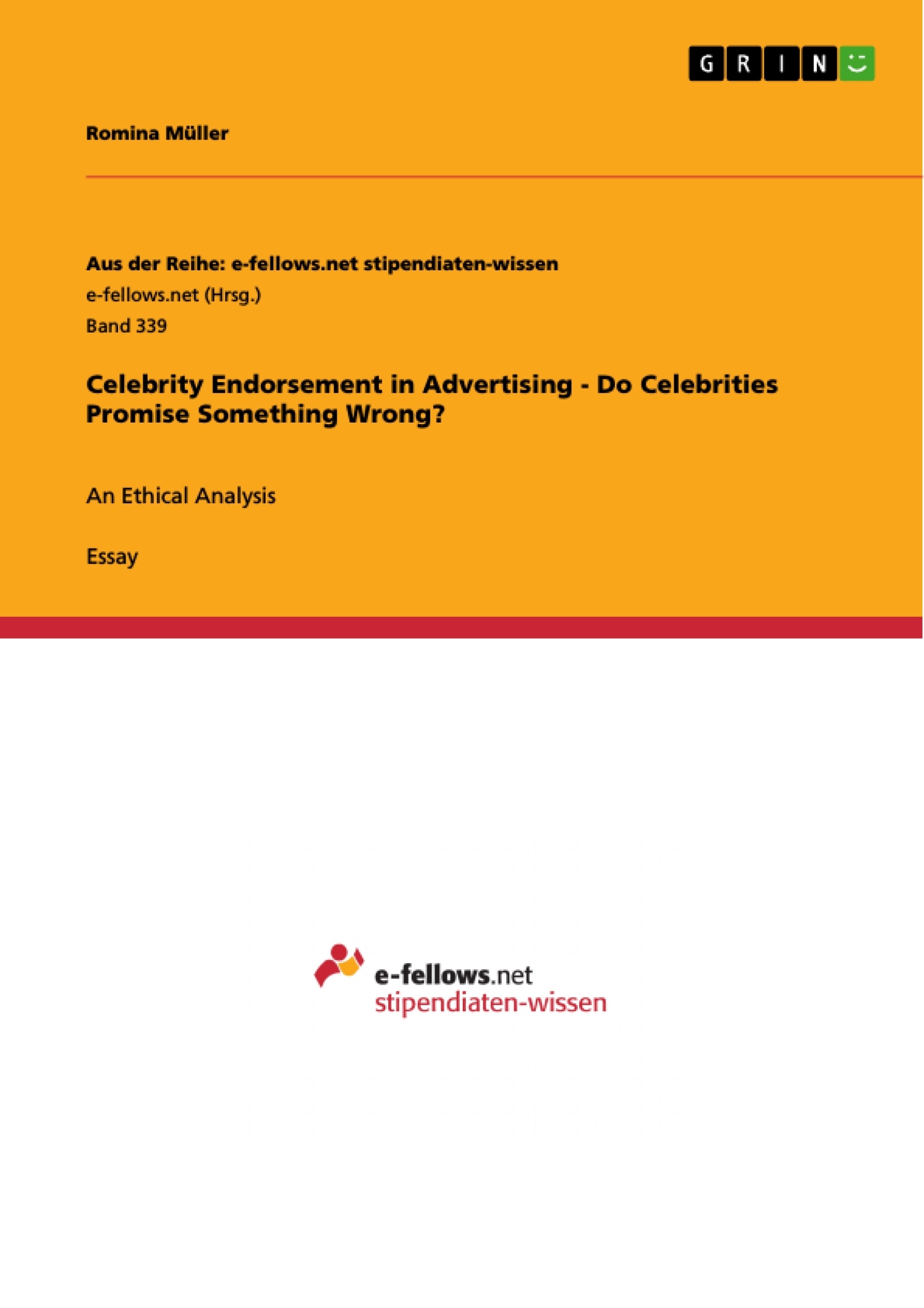In a capitalistic society, it is all about selling. Times are over when there was only one brand to buy. Nowadays, companies have to fight for attention for their products. A price war has emerged, and commercials are a part of it.
Advertising agencies shoot for different solutions to market their products. One of these options is using celebrities to endorse cosmetics, beverages, fashion, and much more. The goal hereby is as follows: If a celebrity—whom some people regard as a superior individual—uses a product, it has to be good for everybody else. Hence, consumers will buy.
The issue with this is that people believe celebrities, no matter what. Some still think that celebrities know more about life and what products to choose than the average person. Companies do not mind, because their use of celebrities boosts their sales. So is it ethical for a company to use a celebrity’s image to sell products, whether favorable or not, and to sometimes bend the truth by doing so?
Table of Contents
- Celebrity Endorsement in Advertising – Do Celebrities Promise Something Wrong?
- L'Oréal's Celebrity Endorsement
- Carls Jr. Burger's Use of Paris Hilton
- Kate Moss and the Cocaine Scandal
- Celebrity Endorsement from a Consumer's Perspective
- The Ethical Use of Celebrities
- Conclusion
Objectives and Key Themes
This text examines the use of celebrity endorsement in advertising, exploring its ethical implications and effectiveness. It delves into specific examples of companies, including L'Oréal, Carls Jr., and brands that have used Kate Moss as a spokesperson, to analyze the impact of celebrity endorsements on both the companies and the celebrities themselves.- The ethics of using celebrities to promote products they may not use or believe in
- The impact of celebrity scandals on brand reputation
- The effectiveness of celebrity endorsements in influencing consumer buying decisions
- The use of the TARES test to evaluate the ethicality of celebrity endorsements
- The role of consumers in critically assessing celebrity endorsements
Chapter Summaries
- Celebrity Endorsement in Advertising – Do Celebrities Promise Something Wrong?: This introductory chapter establishes the context of celebrity endorsement in advertising, highlighting the growing competition for consumer attention and the increasing reliance on celebrities to sell products. It raises questions about the ethics of using celebrities to promote products, especially when they may not actually use or believe in them.
- L'Oréal's Celebrity Endorsement: This chapter focuses on L'Oréal, a company known for its extensive use of celebrity spokespeople. It examines the company's strategy of using celebrities to promote products and questions whether L'Oréal's success is attributable to its product quality or its celebrity endorsements.
- Carls Jr. Burger's Use of Paris Hilton: This chapter analyzes Carls Jr. Burger's use of Paris Hilton in a controversial commercial that was eventually banned. It discusses the ethical concerns surrounding the use of sex and fast-food promotion in the advertisement, particularly in light of Hilton's image and potential impact on young viewers.
- Kate Moss and the Cocaine Scandal: This chapter delves into the case of Kate Moss, a supermodel who faced a public scandal due to her drug addiction. It examines the impact of this scandal on her career, specifically how it led to her dismissal from numerous brand endorsements and explores the reasons behind companies' concerns regarding brand image and public perception.
- Celebrity Endorsement from a Consumer's Perspective: This chapter investigates the consumer perspective on celebrity endorsements, exploring the motivations behind consumers' responses to celebrity advertisements. It analyzes a survey that suggests the limited influence of celebrity endorsements on buying decisions.
- The Ethical Use of Celebrities: This chapter examines the ethicality of celebrity endorsements through the lens of the TARES test, which assesses the truthfulness, authenticity, respect, equity, and social responsibility of advertisements. It concludes that many celebrity endorsements fail to meet the ethical standards set by the TARES test.
Keywords
The text primarily focuses on the use of celebrity endorsements in advertising, exploring the ethical implications, effectiveness, and impact on brand image and consumer perception. Key terms include celebrity endorsement, ethics, brand image, consumer behavior, TARES test, authenticity, and social responsibility. The text analyzes the specific cases of L'Oréal, Carls Jr., and Kate Moss, highlighting the challenges companies face in navigating the complexities of using celebrities to promote their products.- Quote paper
- Romina Müller (Author), 2011, Celebrity Endorsement in Advertising - Do Celebrities Promise Something Wrong?, Munich, GRIN Verlag, https://www.grin.com/document/183823




